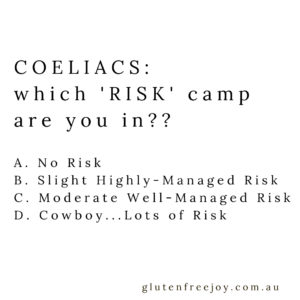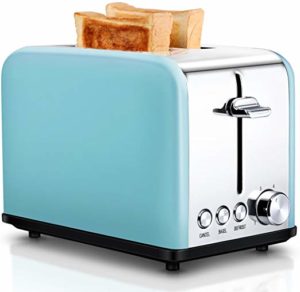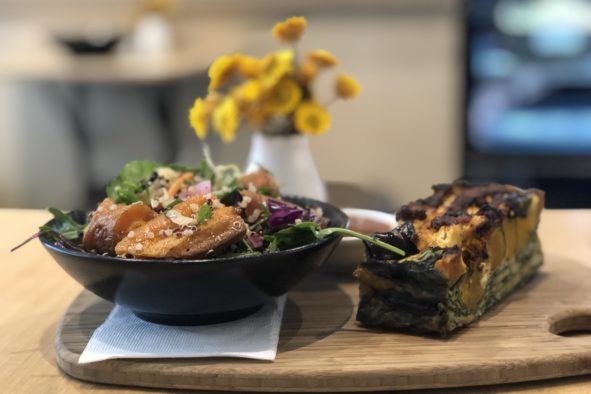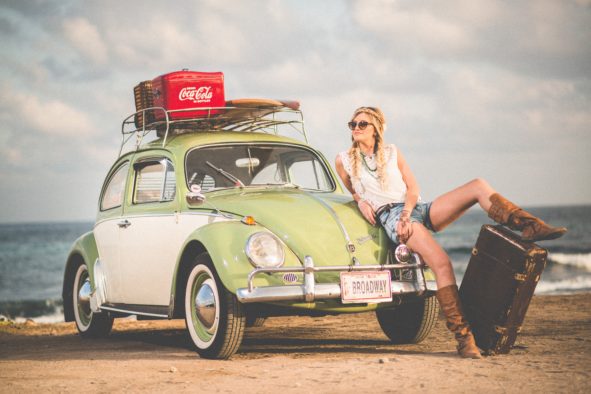Now that you are a fully-fledged diagnosed coeliac, what lengths do you have to go to to avoid gluten? Do you have to stay at home forever in a safe gluten free cocoon, shielded from the horrible gluten infused world around you? Or do you venture out armed with good intel and a battle plan?
Well believe it or not, both pathways, & a whole lot of others in between, form the varied responses of a coeliac to their new life long condition. And the different approaches can generate debate within the coeliac community.
A rather innocent post on a social media coeliac support group page blew up recently into a bit of a slanging match between those that advocate that we cannot ever risk cross contamination and should therefore avoid eating at any venues that are not 100% gluten free, versus those that feel life is too short to live in a shell out of fear re what ‘could’ go wrong, and so choose to take carefully measured ‘risks’ by also eating at non 100% gluten free venues (that do however use ‘coeliac safe’ (CC) food handling procedures).
It prompted me to do a little social media research to get a handle on what proportion of coeliacs are actually not comfortable eating at venues that are not 100% gluten free vs those that are comfortable with taking well managed risks when eating out (ie. by first checking in to the CC practices of venues they ate at)…and to find out the reasons behind peoples choices.

And the result?
A huge 87% were very comfortable eating at non 100% gluten free venues once they had checked that good CC was in place. Surprisingly 5% admitted to being in the coeliac cowboy category (knowingly ingest gluten), with some of the C category peeps (9%) admitting they also at times throw caution to the wind and eat even though they are not sure correct CC is in place. At the other end of the ‘choice spectrum’, only 2% said they never ate out or always took their own food, and 12% said they only ever ate out at 100% gluten free venues.
(you can view the full results and comments HERE)
So, which camp are you in?
From my research, which pathway you choose seems to come down to several factors:
Differing levels of gluten sensitivity, what could be called our ‘risk personality’, and our ‘rule-following’ mindset.
Gluten Sensitivity

Firstly it seems to correlate to the type and severity of symptoms a person may experience if accidentally glutened. Those who are not overly symptomatic tend to take greater risk. Of course the same level of internal damage may* still occur if they get glutened, but this is not a great immediate deterrent for many. Those that start to projectile vomit or quickly curl over with intense stomach cramps tend to understandably be rather cautious when eating out, and will most likely only ever trust a 100% GF venue. Some in this category are not ever comfortable unless they have prepared their own food, so they rarely eat out at all.
Risk ‘Personalities’ or Mindsets
A second factor that can influence how prepared you are to eat at non 100% gluten free venues is how comfortable a person is with taking risks.

As with investment, there are some individuals that prefer to invest in well-researched but more risky ventures in order to potentially get a greater capital outcome. They often bottom out/ have the occasional failure, but they feel the greater potential overall rewards are worth it. Others like to minimise risk, but still allow some. While still others choose only very stable, almost no risk, ways to manage their money, with much lower growth but greater security.
The same can be said with a coeliac’s management of a gluten free diet.
Each person weighs up their cost/benefit ratio and makes a decision…is it worth risking an accidental glutening if I get to hang out with my friends, go to that particular eating spot, or engage with a local culture through its cuisine? Of course, this is usually in the context of having done all the research to establish the food venue in question does use coeliac safe food handling practices. We are not talking about coeliac cowboys here who knowingly choose to ingest gluten. Rather the risk has been minimised, but there still is one if gluten exists in the kitchen concerned.
Or, do you get so sick from minor accidental cross contamination that this social/cultural reward is just not worth the possible cost to your health? You shut down risk because you want 100% control over your health.
Rule Following Mindsets
Or maybe you are simply not a ‘rule breaker’…you will ALWAYS stop at an amber light & you will never jay-walk. So because your doctor told you to  never eat toast from a normal toaster, you never will, regardless of whether you LOVE toast and whether it is the only way in a particular scenario to get some of that nice toast into your belly. And regardless of whether you have never ‘reacted’ or had glutening symptoms from eating toast in a shared toaster. Same for fries from a shared fryer.
never eat toast from a normal toaster, you never will, regardless of whether you LOVE toast and whether it is the only way in a particular scenario to get some of that nice toast into your belly. And regardless of whether you have never ‘reacted’ or had glutening symptoms from eating toast in a shared toaster. Same for fries from a shared fryer.
I have a coeliac friend who simply does not get a reaction from this. I however do. She WILL eat fries from a shared fryer because even though she does, she gets no symptoms and her check ups have always been clear (no villi damage or high antibody count). And she simply loves fries too much. She is one of the lucky ones who is quite asymptomatic, and this level of gluten exposure doesn’t seem to cause a gluten autoimmune response for her. I will get sick for days and have a migraine.
She will not however eat toast from a shared toaster, because her doctor told her not to and she likes to follow rules. It was easy enough to buy a second toaster so she did. I don’t react from a shared toaster in my kitchen, but always use toaster bags when travelling as I don’t want to risk getting sick while on holiday. We are all different.
Point to note…it is definitely 100% still the recommendation of gastroenterologists & Coeliac Aus to NOT use a shared toaster or a shared fryer.

The point is we all react differently and we all have different risk & rule following mindsets. If you never take risks and prefer the security of knowing your food is 100% OK every time, then you probably should not eat out unless it is a 100% GF venue. If, however, you feel your quality of life will suffer too much if you never take a risk (a thoroughly researched one though to minimise the risk), then you will feel ok about eating at a recommended non 100% GF restaurant and give it a go.
So, what ‘risk’ category are you in?

Firstly you need to weigh up the risk benefit ratio for you.
Benefit: social engagement, experiencing foodie joy, different cuisines…
Risk: might get glutened & become sick (for some so seriously hospitalisation is required)
Reduced risk: correct food handling practices and good staff knowledge of gluten containing food.
Fear based living is never a good idea, but the choices we make are our own and we should respect the choices others make.
Learning To Respect Each Other Choices
The recent debates in social media chat rooms prompted me to write this blog. As with all things in life, it is of course so easy to judge others based on our own life experiences. But it is so so important that we support each other through this journey of living with coeliac disease and to not only have the understanding that our bodies respond differently but to also give grace to our fellow coeliacs for the choices they make to manage their disease and their general well-being their way. What may feel irresponsible for some can feel essential for general mental well-being to others.
It really does come down to this.
Our body. Our symptoms. Our choice.

LOVE you to COMMENT BELOW your thoughts 🙂
Jane x
If you are new to your coeliac diagnosis and are uncertain about what you can or cannot eat, or have genuine anxiety about eating out, I have put together some great tips to help you navigate this new journey, which you can access HERE in my Coeliac Survival Kit. My first recommendation is always, however, to join your local Coeliac Society as they have great resources such as how to interpret ingredients lists & understanding your diagnosis, and support groups which can help provide the emotional support when needed.
Coeliac Australia also has a great App to download to help you understand what you can and can’t eat.
And it is of course recommended that you speak to your doctor about any of your concerns, or if your food anxiety is becoming debilitating.
*Please note, not all coeliacs exposed to traces of gluten will necessarily have internal damage…those who are asymptomatic tend to have a less reactive autoimmune response to gluten, and therefore have less or no damage to some lower levels of gluten exposure [1]. This can be verified through both endoscopic results and antibody levels (anti-iTG, EmA, DGP antibodies) after exposure to these trace amounts. In contrast, other coeliacs exposed to the same level can have a significant autoimmune response, and therefore more significant damage and subsequent symptoms. You can read more about this in Not All Glutening Is Equal…Understanding the Asymptomatic Coeliac
[1] Caio G, Volta U, Sapone A, Leffler A L.,De Giorgio R, Catassi C, Fasano A. Celiac disease: a comprehensive current review (2019), BMC Medicine.
For MORE on this topic head to my slightly controversial BLOG Why I Hate* Coeliac Extremists 🙂







